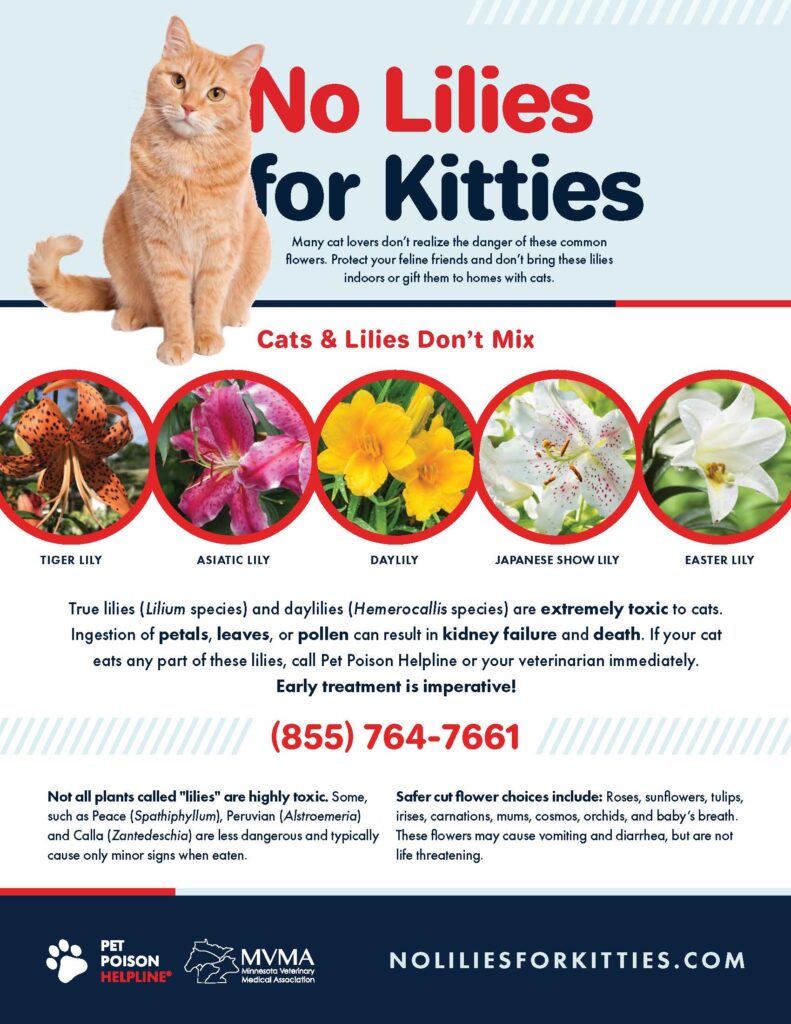Common Easter Toxins

Author: Maggie McCaslin, CVBL, Practice Manager
Happy Easter, Star Valley!
Easter is just around the corner and with that comes the joy of the season and lots of fun to be had. Whether you and your family are enjoying Easter egg hunts, filling Easter baskets, or smelling the sweet aroma of lilies and fresh flowers, there are some things to be aware of if you have pets. The following is a list of the Common Easter Toxins from the ASPCA Animal Poison Control Center:
Chocolate
Easter is typically the Animal Poison Control Center’s top day for chocolate intoxication calls, topping Christmas, Valentine’s Day, and even Halloween! Why? Because pets find Easter candy hidden around the house or the yard or get into unattended Easter baskets. Make sure all candy is out of reach of pets at all times when they will be unsupervised.
Lilies
True lilies (with the Latin name starting with Lilium) or daylilies (Hemerocallis) are a concern for acute kidney injury in cats. We discourage cat owners from keeping Easter lilies (Lilium longiflorum) in their homes. If you must have them in your home, make sure cats can’t access any part of the plant, including leaves (on the plant or loose), pollen, or the water flowers were stored in – all can be life-threatening.
Easter Grass
The plastic grass found in Easter baskets is appealing to pets but can cause a life-threatening gastrointestinal obstruction that may require surgery to resolve.
Table Food
Onions, garlic, macadamia nuts, grapes, and raisins are common toxic foods that pets ingest. However, many foods that aren’t toxic may cause stomach upset that could lead to pancreatitis.
Herbicides
Many people begin spring yard work on Easter weekend. Make sure herbicides are kept where pets can’t chew or puncture the bottle and that the application is dry before letting pets outside. Pets are often exposed when they are outside while their owners are spraying these products. While many herbicides are not highly toxic, any exposure does warrant a call to the vet.
All information above provided by the ASPCA Animal Poison Control Center and can also be found at https://www.aspca.org/pet-care/animal-poison-control and the Pet Poison Helpline
Wishing you a very Happy Easter
All of us at Bridger Animal Hospital wish you a very Happy Easter and a safe holiday! Should you experience an animal emergency this weekend, please reach out to us. Our on-call veterinarian will be available to assist you.
Helpful information to have on hand when you call our emergency service includes:
- What toxic substance(s) your pet ingested, including item packaging with list of ingredients if available
- Time of occurrence
- How much your pet weighs
- Age and breed of pet
- Any current medications your pet is taking
It’s also important to note that a pet poison center will have ample information for you that may go above and beyond what we have available at the time of your emergency. Many poison control agencies will help you immediately and then continue your pets care with us in our clinic.
PET POISON HELPLINE:
855-764-7661
This blog is presented to you by Maggie McCaslin, certified veterinary business leader and practice manager at Bridger Animal Hospital. If you have any questions regarding anything in this article, please reach out to us.
References:


